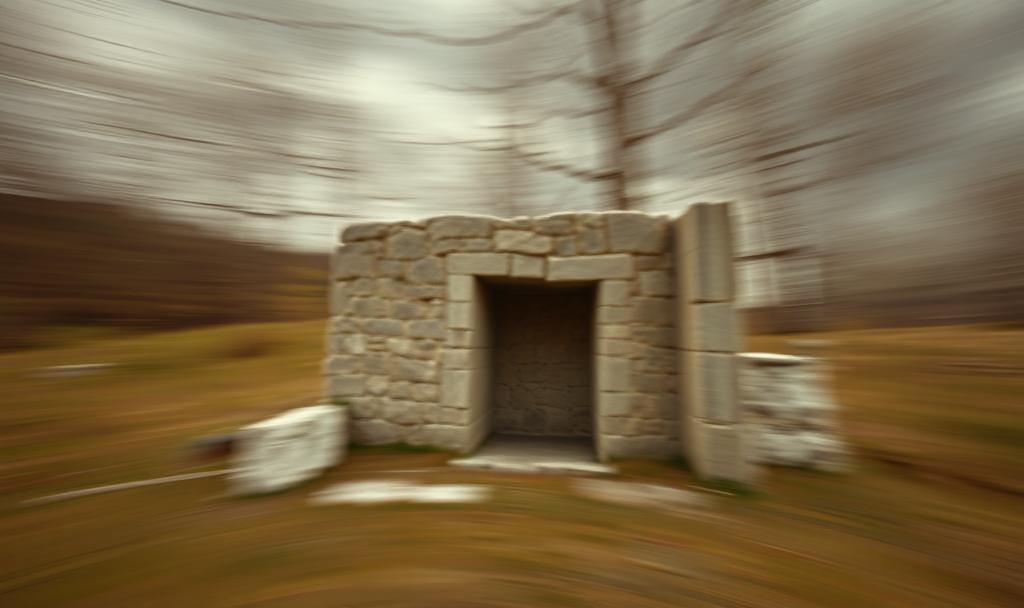How is Jesus STILL alive?
A Response to Lilith Helstrom Pt. 2
Recently, Lilith Helstrom wrote a post on the platform Medium entitled "8 Ways the Gospel Message Contradicts Itself." In it, she makes eight assertions that seek to expose the supposed contradictions in the message she rejects.
In my last post in this series, I discussed the importance of understanding why Christ's violent sacrifice was necessary for God to forgive His people.
Today, I seek to answer the second claim:
Claim #2
“Jesus died on the cross for your sins and that’s why he’s still alive millennia later, longer than humanly possible.”
Response:
There was once a tomb in Israel that held the body of a dead man. And to everyone’s astonishment, that man was raised from the dead. No, I’m not referring to Jesus. I’m referring to one of his best friends, Lazarus.
In John 11, we read the heart-wrenching story of the death of Lazarus, the brother of Mary and Martha. As Jesus and His disciples draw near, the scene is thick with sorrow, engaging every sense—the foul stench of decomposition, loud wailing from mourners, puddles of tears forming on the dusty ground, and grieving embraces that linger. Every detail aches with a deep longing for the horror of death to come to an end.
Upon discussing the nature of eternal life with Mary and Martha, Jesus steps up to the tomb and demands that the stone be rolled away. With a loud voice, He proclaims, “Lazarus, come out” (John 11:43).
Suddenly, a stable heartbeat returns, blood begins rushing through his veins, and his brain starts functioning—he can see, he can hear, he can feel, he can breathe. He lives! And the mummified Lazarus walks out of the tomb.
Though this miracle left everyone amazed, Lazarus would go on to die again someday. The sign Jesus performed did not raise Lazarus to an eternity of physical life. But it did point to another resurrection that Jesus certainly has the power to perform.
The Difference of Christ’s Resurrection
In the Bible, Christ is described as being raised from the dead, not with the same body He walked with for thirty-three years, but with a glorious body.
Paul writes, “But our citizenship is in heaven, and from it we await a Savior, the Lord Jesus Christ, who will transform our lowly body to be like his glorious body, by the power that enables him even to subject all things to himself. (Philippians 3:20–21; Emphasis mine).
The resurrection of the saints on the last day is going to bring with it glorified bodies that are the same in nature as Christ’s resurrected body.
Here’s Paul again: “For this perishable body must put on the imperishable, and this mortal body must put on immortality” (1 Corinthians 15:53).
Again, the glorious body the saints receive in the New Creation is the same kind of body as the Lord Jesus's, and it is characterized by immortality. In other words, this new body that Christ was raised with and that we will receive will never be able to die again.
We conclude, then, that Lazarus was raised unto what was. Christ was raised unto what will be.1
Conclusion
So, Lilith raises this objection, thinking it is a weak point or contradiction in the gospel. But this sarcastic claim is a misrepresentation of the Christian message. It fails to account for the fact that Christians confess a resurrected Savior Who is not only truly human (like us) but also truly God (not like us).
Jesus had the power to raise Himself from the dead and, as God, clothed His human nature with immortality. This is why Jesus is still alive 2,000 years after His resurrection.
Rather than being a head-scratching reality that causes doubt, this is rich, good news. If Christ is not raised with a glorified body, we have no hope. But Christ is raised with a body that can never die, assuring us that death will not have the final word.
As we trust Him, Who is the resurrection and the life, though we die, we shall live eternally with a body like His when He returns.
Paul concludes,
“When the perishable puts on the imperishable, and the mortal puts on immortality, then shall come to pass the saying that is written:
“Death is swallowed up in victory.”
“O death, where is your victory?
O death, where is your sting?”
The sting of death is sin, and the power of sin is the law. But thanks be to God, who gives us the victory through our Lord Jesus Christ.
Therefore, my beloved brothers, be steadfast, immovable, always abounding in the work of the Lord, knowing that in the Lord your labor is not in vain.”
(1 Corinthians 15:54–58).
SEVEN WEEKS COFFEE: Type the discount code REFORMANDA to save on your first purchase!
I'm giving a shout-out to Kyle Worley when he said this on the Knowing Faith podcast. Not sure which episode.




